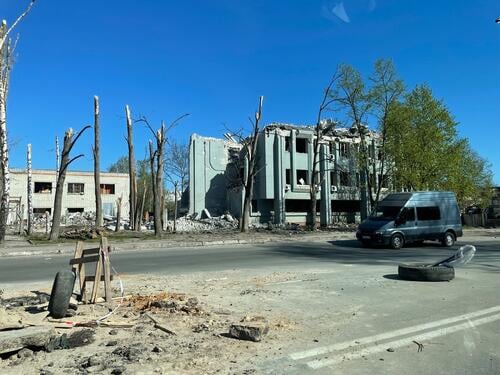The intense fighting has led to 6.6 million people leaving Ukraine and becoming refugees in Europe.* Within Ukraine, over 4.4 million people remain displaced by the war.**
As war continues across Ukraine and people flee, our teams are responding to a severe humanitarian crisis, both in Ukraine and in neighbouring countries.
We currently have approximately 20 international and 350 Ukrainian staff working in response to the war in Ukraine. They work as medical staff (surgeons, doctors, nurses); psychologists; logisticians and administrators.
*UNHCR, July 2024.
**Ministry of Social Policy of Ukraine, July 2024.
How we are responding

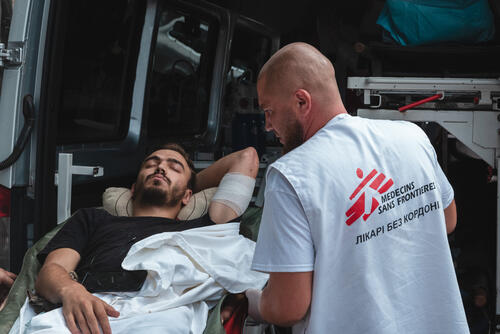
Our teams evacuate patients from hospitals close to the frontlines, including trauma patients, and refer them to hospitals in safer areas through a fleet of 17 ambulances operating across eastern Ukraine. Some of the ambulances are equipped for intensive care support. Run by a team of paramedics, doctors, and drivers, the ambulances have referred over 18,500 patients since 2023.

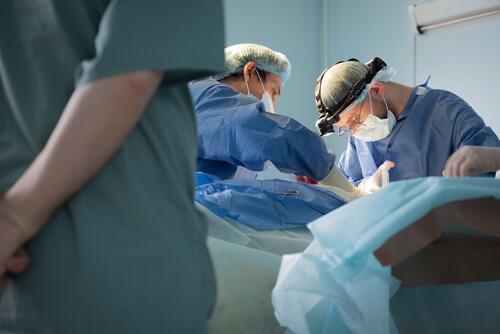
In Kherson city, an MSF medical team supports surgical and trauma activities. Medical teams run triage and operating theatre activities and perform surgeries. Our staff also provide treatment during mass casualty events and perform surgeries, in the emergency room at Pokrovsk hospital. A medical team also supports Kostiantynivka hospital in Donetsk and the Izium hospital in Kharkiv based on need.

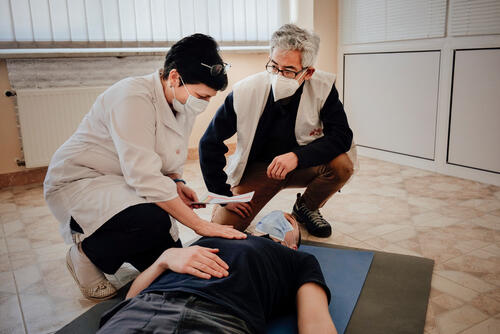
We send donations of medical supplies and hygiene kits to medical facilities, and provide training support for emergency responses, managing a high influx of war wounded, decontamination, trauma, gender-based violence and mental health. Donations from MSF have also been used to restore hospitals damaged by shelling in Donetsk, Kherson, and Dnipropetrovsk regions.

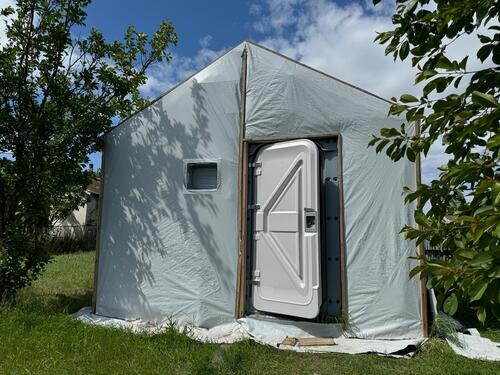
MSF mobile clinics provide basic healthcare services, psychological counselling and social services, sexual and reproductive health services, mental healthcare and health promotion. Through these mobile clinics, we also provide medicines for people with chronic illnesses such as hypertension, asthma, diabetes, heart disease and epilepsy. Severely unwell patients are referred to hospitals. Through our mobile clinics in the Kherson and Mykolaiv regions, we are now screening for tuberculosis.

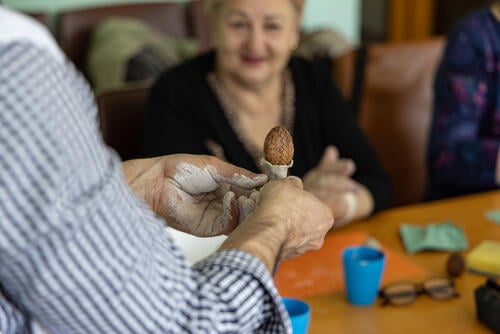
Our teams provide mental health support through mobile clinics in areas where it’s hard for patients to access healthcare, particularly in rural areas and shelters for people displaced by the war. In 2023, a dedicated centre for people experiencing war-related post-traumatic stress disorder was opened in Vinnytsia. There, we offer psychological sessions for patients and people in their support network. Our specialists provide them with techniques to help reduce and prevent worsening of symptoms, increase coping skills, improve interpersonal functionality, and decrease the consequences of traumatic stress.

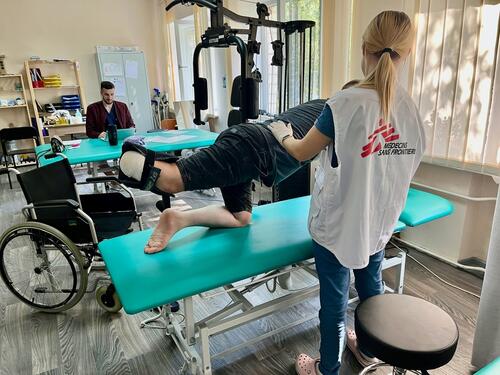
MSF teams are supporting seriously injured post-surgery patients with specialised physiotherapy and post-operative care in Cherkasy region in order to aid in their longer term recovery.
- Try a different country, year, format, or topic.
- Clear one or more filters



